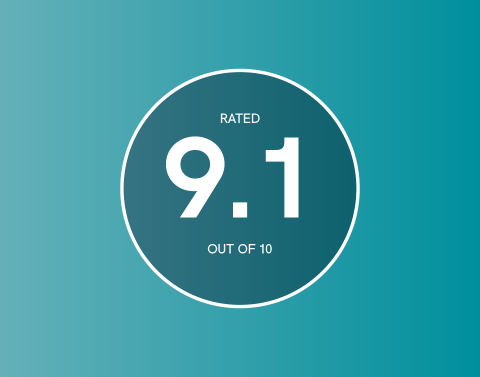You’re almost there. Your CV has landed you that all important interview and now it’s time to prepare.
Lack of interview preparation is the number one reason why people fall at the first hurdle; never assume that you can walk in to an interview and just ‘wing it’. To ensure your efforts don’t go to waste, there are several things that you can do to give you competitive advantage over other applicants. Read on to find out what these are:
Information is power
Reading up on the mission of the company, its vision, values and leadership team should be the first thing you do. It’s essential to familiarise yourself with the history of the organisation, any recent press coverage they’ve had, noteworthy achievements and end of year accounts. Having an understanding of the company can also form the basis for your questions at the end of the interview in terms of potential growth opportunities, international mobility etc.
Showing that you have taken the time to learn about the business and its culture is a great way to impress your interviewers. Make sure you look into developments in the industry too to show that you’re engaged and enthusiastic. Whatever you do, don’t do your research at the last minute. You won’t absorb much information from a quick google the night before your interview; give yourself a full day to really get to grips with the company that could potentially be your future.
Plan your journey
How many times have you heard of people being late for their interview? It creates such a bad impression insinuating that you’re poor at time keeping and frankly don’t care that much. Look up exactly where you’re going and set off well in advance of your interview time; you want to ensure that you arrive at least ten minutes before to settle and gather your thoughts.
Make sure you keep your phone fully charged so that if traffic, an unexpected breakdown on the motorway or train delays are the cause of your delay, you can look up an alternative route and then call the HR department.
Practice makes perfect
In your interview, can you back up the claims you make in your CV? Anyone can say ‘I have excellent leadership skills’ or ‘I’m level headed in a crisis’, but you need to substantiate these statements with real examples. How? Use the STAR technique:
Situation: give a brief outline of the situation
Task: describe what you needed to do as a result of the situation
Action: explain what you did, how you did it and why
Result: describe the outcome of your actions
Make sure you research commonly asked interview questions (see below for some examples), write them down and prepare answers using the STAR technique:
- Tell me about yourself
- Describe your achievements to date
- Tell me the most challenging situation you have faced recently and how you dealt with it
- What are your major weaknesses?
- What decisions do you find difficult to make?
- Why are you leaving your current employer?
You don’t want to sound like a robot, but if you read your answers through and become familiar with various points then you’ll be well equipped to adapt your answers to different scenarios. Practice your answers in front of a mirror or ask your friend to do a mock interview with you using your notes. You'll feel much more confident on the day having done this.
Ensure you read the job spec thoroughly and have at least one example of an experience or a transferable skill that covers that requirement for the interview. Don’t forget to be enthusiastic about the job too and demonstrate willingness to learn and progress with the company. You shouldn’t discuss money in the interview unless you’re asked about your salary expectations and whatever you do, don’t be negative about a previous or current employer…
Dress to impress
Interviewers will judge you by your appearance. Fact. If you haven’t taken the time to polish your shoes, iron your shirt or sort your hair out then you can probably kiss goodbye to being taken seriously. You want the job so make sure you look professional (it’ll help you feel more confident!). It’s also important to wear something that you’re comfortable in as there’s nothing appealing about a suit jacket that’s too tight. You’ve taken the time to apply for the job so don’t mess the interview stage up by being under prepared. In order to present the best version of you and be one step closer to the interview, follow these tips towards interview success!
After the interview
In today’s job market, sending a post-interview thank you email/note can be the difference between landing a job and being overlooked. Sending a thank you shows that you appreciate the interviewer’s time and above all, want the job. Briefly reiterate your skills, experience and accomplishments in the email and reference your conversation. Most hiring managers pay close attention to follow up emails/notes so this small gesture is key in standing out from your competition.
Are you interested in further career development tips? Read our other blogs…
Moving on up: 5 top tips on asking for a promotion:
https://www.ojassociates.com/blog/2016/08/moving-on-up-5-top-tips-on-asking-for-a-promotion
5 top tips for mastering phone and video interviews:
https://www.ojassociates.com/blog/2016/07/5-top-tips-for-mastering-phone-and-video-interviews
Get noticed: 5 top tips to create that killer LinkedIn profile:
5 top tips for strategic career management:
https://www.ojassociates.com/blog/2016/04/top-5-tips-for-strategic-career-management
5 top tips to manage your workload effectively
https://www.ojassociates.com/blog/2016/07/5-top-tips-to-manage-your-workload-effectively



